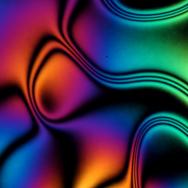This has not been an easy year. Around the world, the COVID-19 pandemic has radically reshaped everyday life—threatening not only public health, but our ability to work, study, travel and gather. In the United States, widespread protests and a presidential election also laid bare deep fissures in the social and political fabric of the country.
The University of Chicago also faced enormous challenges as a campus community—challenges that could not have been faced without an incredible, collective effort from those in Hyde Park and those working, studying and teaching away from campus. Faculty, students and staff showed great resiliency in adapting to remote learning and keeping each other healthy. And the University was on the frontlines of the pandemic: partnering to deliver meals across the South Side, helping the public better understand COVID-19 and discovering innovative ways to treat patients.
In a year full of challenges, there were still countless people, events and accomplishments worth celebrating at UChicago. From quantum breakthroughs to Nobel achievements to breaking sports barriers, here are just a few of the stories we’ll remember from a year like no other:
Supporting the South Side
When the pandemic strained residents and businesses, the University of Chicago worked with local organizations to help. On March 30, the University launched a program to prepare and deliver meals to South Side residents, support South Side businesses and their employees, and support local nonprofit organizations and the vulnerable populations they serve.
Created through the Partnering for Community Impact initiative, the first phase of the program included nearly 260,000 free meals for community members, distributed in partnership with the Greater Chicago Food Depository; and $1.3 million in emergency bridge grants to more than 200 small businesses and 79 community-based nonprofits on the South Side.

Scholars and students stepped in too. The Law School’s Institute for Justice Clinic on Entrepreneurship quickly worked to create Shop in Place Chicago, a website to help drive traffic to Chicago-area stores that were offering online shopping, curbside pickup, and delivery for food and other essentials.
Within the first month, the website had expanded to include 440 businesses.
“It just struck me as the perfect opportunity for us to highlight all of these incredible small businesses,” said Lect. Amy Hermalik, associate director of the IJ clinic.
Students began by volunteering their time over spring break—not only in building the website, but in creating information sheets for small businesses that explained issues such as small business loans, unemployment benefits, tax deferral programs and the federal Families First Act.
A quantum blueprint
The Chicago area has become one of the undisputed leaders in quantum information science and technology. Scientists at the University of Chicago, Argonne National Laboratory and Fermi National Accelerator Laboratory have shaped the field of quantum technology for years, but 2020 saw some major milestones.
In a July news conference at UChicago, the U.S. Department of Energy unveiled a report that laid out a blueprint strategy for the development of a national quantum internet, bringing the United States to the forefront of the global quantum race and ushering in a new era of communications.
The U.S. Department of Energy joins leaders from government and science, including UChicago Prof. Juan de Pablo (pictured above), at a July 23 event at the University, entitled ‘Launch to the Future: Quantum Internet.’ (University of Chicago video)
In August, the DOE established five new National Quantum Information Science Research Centers, including a center led by Argonne and a center led by Fermilab, which are each projected to receive $115 million in funding over the next five years.
“Chicago is home to some of the largest collaborative teams working on quantum science in the world, and this is a major step forward for developing critical new applications that will have significant impact in the future,” said President Robert J. Zimmer. “These centers will help to build a foundation of knowledge, to speed discovery, and particularly at the University of Chicago, to educate a workforce of quantum engineers for the future.”
Finding new ways to connect
Since the University began remote learning in Spring Quarter, students, faculty and the wider UChicago community have found creative and innovative ways to collaborate under unique circumstances.
The campus community quickly adapted to their virtual environments—from undergrads setting up their at-home study spaces to a class of 60- and 70-year-olds learning Zoom to stay connected. Instructors also created innovative video lessons, including one mathematician who taught abstract linear algebra classes on YouTube.
Asst. Prof. Daniil Rudenko researched lights, markers, and filming and editing techniques to remotely film YouTube videos from Russia.
Students and instructors also brought current events into the lab and the classroom, helping contextualize some of today’s most pressing issues—including the fight against COVID-19, the history of pandemics and the presidential election. “It’s cool to see how the classes have been tailored to reflect the current situation,” said fourth-year Eliana Melmed.
Students and faculty also stepped beyond the classroom this fall to nurture a sense of social connection and intellectual discovery. Those efforts spanned disciplines, ranging from sampling the diversity of aquatic species in Jackson Park to finding art inspiration on the Midway Plaisance. “Working outdoors allows for a very particular, more complex world than the screen of your computer,” said Prof. Jessica Stockholder, who taught an outdoor art class this fall.

Alumni break sports barriers
A pair of alumni became pioneers in professional sports.
In August, Chicago Booth alum Jason Wright, MBA’13, was hired as president of the Washington Football Team, becoming the first Black team president in NFL history.
Three months later, Kim Ng, AB’90, was named the general manager of the Miami Marlins—becoming the first woman to hold the position in Major League Baseball.
A softball standout and public policy major at UChicago, Ng wrote her senior thesis on Title IX, the law protecting people from discrimination based on sex in federally funded education programs.

“I wanted to do it on a topic that I was passionate about,” she told The University of Chicago Magazine in 2018. That piece of legislation, and the women’s movement in general, “explained why I had a lot of the opportunities that I did, and how much work we still had to do.”
Wright, who enrolled at the Booth School of Business after seven seasons as an NFL player, demonstrated his passion and leadership—both while he was on campus and after graduating.
“As an alum, Jason continued to be an active partner to the school, offering his time and resources to support the next generation of trailblazers,” said Jessica Jaggers, dean of students and associate dean of student life at Chicago Booth.
A dream come true
On Oct. 23, Daniel Olmo headed to Whitney M. Young Magnet High School with his family, ready to discuss financial aid and scholarships. But when he arrived, he saw a group of people surrounded by balloons and TV cameras, waiting to deliver even more exciting news: Olmo had been accepted into the University of Chicago.

“I feel like this is a dream,” Olmo said. “[UChicago] is my number one choice, and it has been for a while. And I really appreciate the opportunity to study there.”
In addition to being a first-generation college student, Olmo became the first student admitted to the undergraduate College’s Class of 2025. While most students didn’t begin hearing their admissions decisions until winter break, Olmo applied early through a new UChicago Promise program aimed at supporting students in the city of Chicago.
“I feel like this is a dream. [UChicago] is my number one choice, and it has been for a while.”
Read more here about the program—called Moving Online, Virtually Empowered, Unlimited Potential (MOVE UP)—and Olmo’s surprise ceremony.
An alum’s Nobel Prize
In the early-morning hours of Oct. 6, Andrea Ghez got a call that changed her life. A 1983 graduate of the University of Chicago Laboratory Schools, the renowned astronomer became only the fourth woman to win the Nobel Prize for Physics.
Now a professor at the University of California, Los Angeles, Ghez was honored for her breakthrough discovery of the supermassive black hole that lurks at the center of the Milky Way. She is one of 93 scholars associated with the University of Chicago to receive a Nobel Prize.
In a 2006 interview with PBS’ NOVA, Ghez remembered the impact of her high school chemistry teacher Judith Keane, SB’62, MAT’64, from Lab: “She was one of the only female science teachers I ever had, and she was incredibly encouraging. I think it was important for me to see, very early on, a woman in this role.”
Earlier this month, Ghez spoke more about the responsibility she now feels as “a spokesperson for science,” and the opportunity she has to be a more visible role model. Read the full Q&A here.
Groundbreaking art

This fall, artist and alum Jenny Holzer, EX’74, launched a groundbreaking art installation at UChicago called YOU BE MY ALLY—one that reimagined material from the College’s Core curriculum, the common academic foundation for UChicago undergraduates.
With help from former and current College students, Holzer created a web-based augmented reality app that shared texts from the Core through virtual projections—both on campus architecture and elsewhere around the world.
“Part of the beauty of the project is that it challenges us to reevaluate these works in a public context,” said fourth-year Zahra Nasser. “It’s different seeing the words projected on a building instead of inside a book.”
YOU BE MY ALLY also included LED trucks that brought Core texts across the entire city, a well as nonpartisan, get-out-the vote messages submitted by students. Those messages were part of a larger get-out-the-vote campaign from students at UChicago’s Institute of Politics. Those efforts, which focused on early voting, helped push UChicago to the highest participation in the country on TurboVote—the voter registration platform most used by U.S. colleges.











